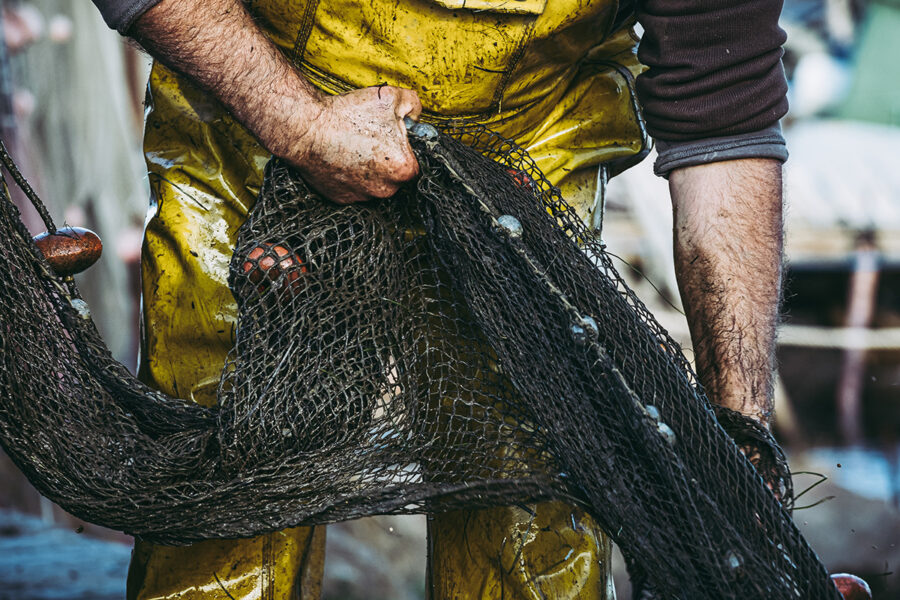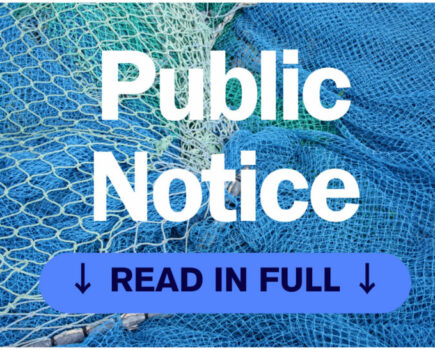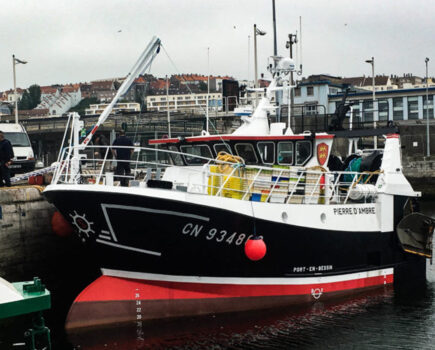There is cautious optimism that the government may be willing to allow more flexibility over the regulations covering the skilled worker route for foreign crews on fishing vessels working inside the 12nm limit, reports Tim Oliver.
This follows a ‘constructive’ meeting in London last week between the Fishermen’s Welfare Alliance (FWA) and immigration minister Robert Jenrick, when industry leaders and MPs spelled out the problems that have been encountered when recruiting migrant fishermen to work on vessels that work inside 12 miles.
Robert Jenrick told the industry delegation that the skilled worker route will not change, at least in the short to medium term, but that he is prepared to give the industry more time to adapt to the skilled worker requirements beyond the spring deadline when the regulations will come fully into force, provided the industry can provide ‘compelling evidence’ to support its case.

Immigration minister Robert Jenrick is reported to be prepared to give the industry more time to adapt to the skilled worker requirements.
Harry Wick, chief executive of the Northern Ireland FPO and a member of the FWA, said after the meeting that the industry now has ‘a bit more clarity’ on the skilled visa route.
He told Fishing News: “The minister doesn’t object in principle to an immigration system that better fits the needs of the fishing industry, but we should be in no doubt that in the short to medium term the skilled visa route is the only show in town inside 12.
“That’s what we need to be focused on now in the short to medium term. It may not be the permanent solution, but we have that clarity now, which is important.
“He is prepared to give us more time to adapt, past the spring deadline, providing we can submit compelling evidence that he should.”
Under section 43 of the Nationality and Borders Act 2022, foreign crewmen with only a transit visa will not be allowed to work on vessels fishing inside the 12nm limit. The regulation was due to come into force last November – and vessel owners breaking the rules can be fined up to £20,000 for each illegal crew member.
“We made our protestations at the time, and they gave us a six-month extension, but that’s not long enough,” said Harry Wick.
“We can’t get guys to pass the English language exam. We can’t get enough of them, and that isn’t going to happen unless we teach them ourselves, or we set up a completely new route for crews from English-language-speaking countries, such as Belize, for example.”
But he said it will not be possible to change entire crews in time for the spring deadline, and they would have to be changed a third at a time.
“We have to have a safe transition, and for my money that means bringing them across in thirds. That will allow the more experienced hands to train the new guys, and then after six months you bring in a couple more new guys. But all that takes time, and we made the point that we can’t just turn on a sixpence – we need flexibility.
“The minister doesn’t object to that in principle, but we’re going to have to provide written evidence of why that needs to happen and what the plan is.”

Harry Wick: “We should be in no doubt that in the short to medium term the skilled visa route is the only show in town inside 12.”
The delegation also raised the issue of the need for flexibility around working hours, which are currently restricted to 48 hours a week. Harry Wick said this was not workable during the peak season, and they wanted the industry to be eligible for an aggregation system that allows workers to work longer hours in one period.
“The Home Office is drafting a response to our requests for flexibility around working hours which I have been told will contain ‘good news’,” he said.
He said the Migration Advisory Committee will shortly commence a review of shortage occupations.
“We thought this had been kicked down the road – it has been, but not very far. They initially said they wouldn’t do anything while the immigration system is under review, but it seems now they are going to do it ‘shortly’, to quote the minister.
“Fishing was recognised as a shortage occupation in 2020, but it was in the middle of Covid and everyone was afraid there was going to be mass lay-offs and we’d be struggling to find jobs for workers – but now it’s the opposite and we’re struggling to find workers for jobs.”
He said the Home Office also recognises the need to be more flexible around foreign fishermen’s previous time spent fishing inside the 12nm limit when considering transit visa applications for 2023, as fishing patterns of many vessels will change.
Harry Wick said the minister and officials did not give any indication that there were going to be any changes to the transit visa system – but that was not discussed, because the industry representatives didn’t want to get distracted from the main reason they were there, which was to put the case for more clarity and flexibility in the skilled worker route for employing foreign crews.
“Transit visas are a whole different argument, and we focused on what we want in the short term,” said Harry Wick.
“The minister was receptive to our case, although he could still say no – but at least now we have some clarity. It was a constructive and positive meeting.”
He said it had been difficult to get a slot to see the minister in view of the high political importance of immigration at present, particularly in relation to migrant Channel crossings. “We were fortunate, and we wanted to make the most of the opportunity,” he said.
Attending the meeting with Harry Wick were Darren Stevenson, a lawyer specialising in immigration issues who has worked with the industry for several years on crewing issues, and Northern Ireland MPs Carla Lockhart and Jim Shannon, who have pressed the industry’s case with the government.
This story was taken from the latest issue of Fishing News. For more up-to-date and in-depth reports on the UK and Irish commercial fishing sector, subscribe to Fishing News here or buy the latest single issue for just £3.30 here.








